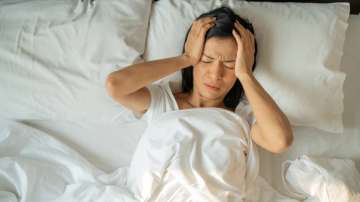Termed 'coronasomnia', COVID-19-induced insomnia is often attributed to pandemic-related stress, anxiety, depression and other mental health conditions. Studies suggest that people with “long COVID” may be at higher risk of developing sleep problems. A study published in March 2021 in the Annals of Clinical and Translational Neurology found that roughly 1 in 3 COVID long-haulers had insomnia after COVID-19 (though about 16 percent of the group reported having trouble sleeping before getting COVID-19, too).
Sleep is extremely important for the overall function of our bodies, including our metabolic systems and our immune systems, Since sleep is important for concentration and memory function, it will enhance how patients recover from the disease and impact their quality of life. To treat sleep disorders, including those caused by COVID-19, doctors often turn to cognitive behavioral therapy, light therapy, melatonin or a mixture of methods to help correct your sleep schedule and improve your sleep hygiene.
Since the start of the COVID-19 pandemic, more people report symptoms of insomnia. It’s been difficult for researchers to tease out if the virus itself is causing insomnia. But some research suggests people who’ve been diagnosed with COVID-19 are more likely to develop insomnia.
There’s also research showing that insomnia and other sleep disorders are very common after COVID-19 illness. Insomnia is one of the most common post-COVID-19 (or long COVID) symptoms. So even if people don’t develop insomnia while they’re sick, they might develop insomnia as part of a long COVID condition.
How do you treat COVID-19 insomnia?
Treatment for COVID-19 related insomnia is the same as treatment for other types of insomnia. The first step is to develop a sleep strategy by working on sleep hygiene. Some things that can promote better sleep hygiene include:
- Go to bed at the same time every night.
- Sleep in a dark room, with as little light as possible.
- Do not use light-emitting electronics in bed, including cell phones, computers, and TV.
- Eat an early dinner.
- Get daily exercise.
- Do not use caffeine, alcohol, or nicotine in the evening.
Disclaimer: Tips and suggestions mentioned in the article are for general information purpose only and should not be taken as professional medical advice. Please consult a doctor before starting any fitness regime or medical advice.
Also Read: Blood thickening can be an issue during winter; know how to avoid it with home remedies
Also Read: mRNA Covid-19 vaccines can increase serious adverse events? US researcher claims

